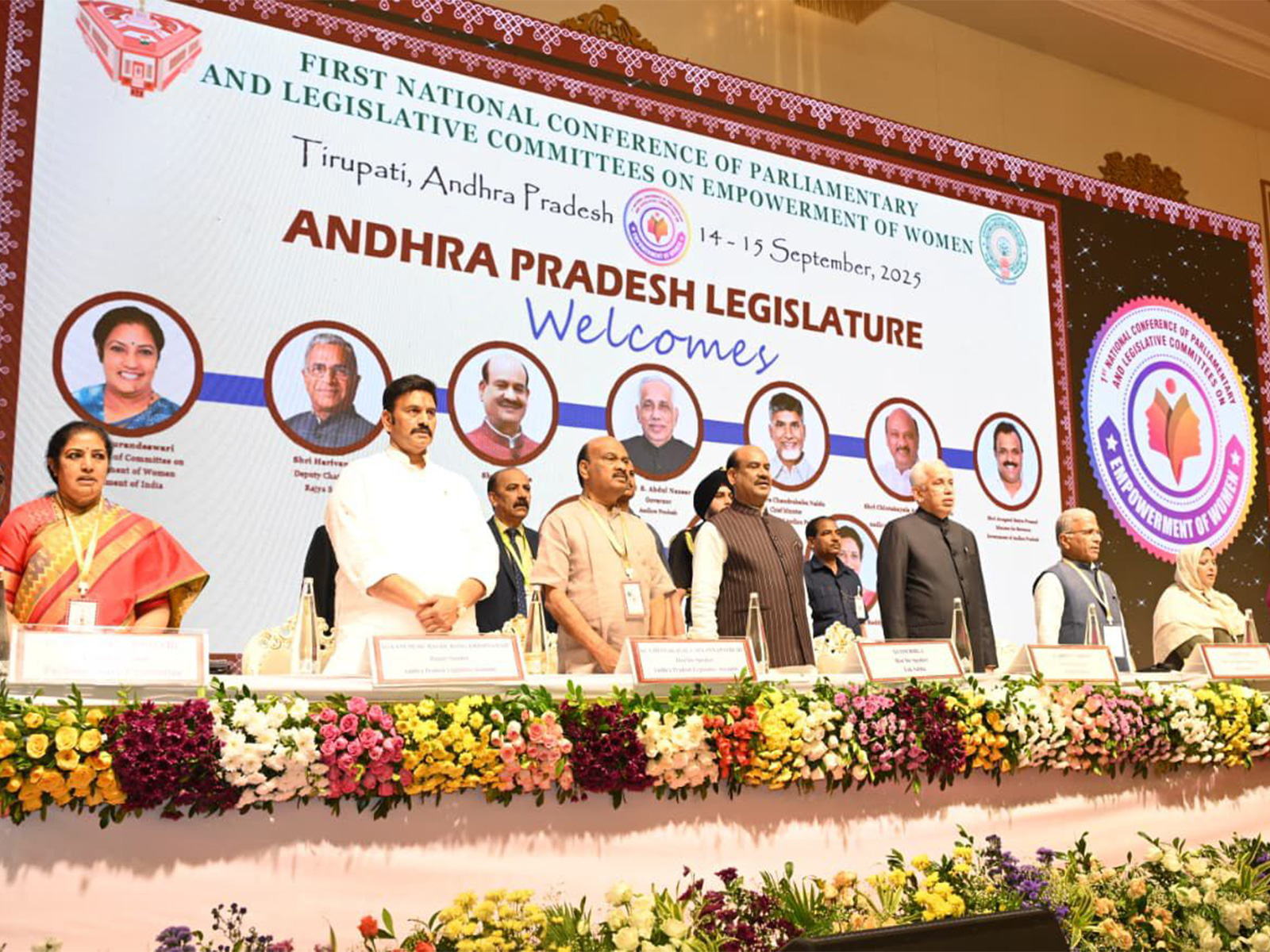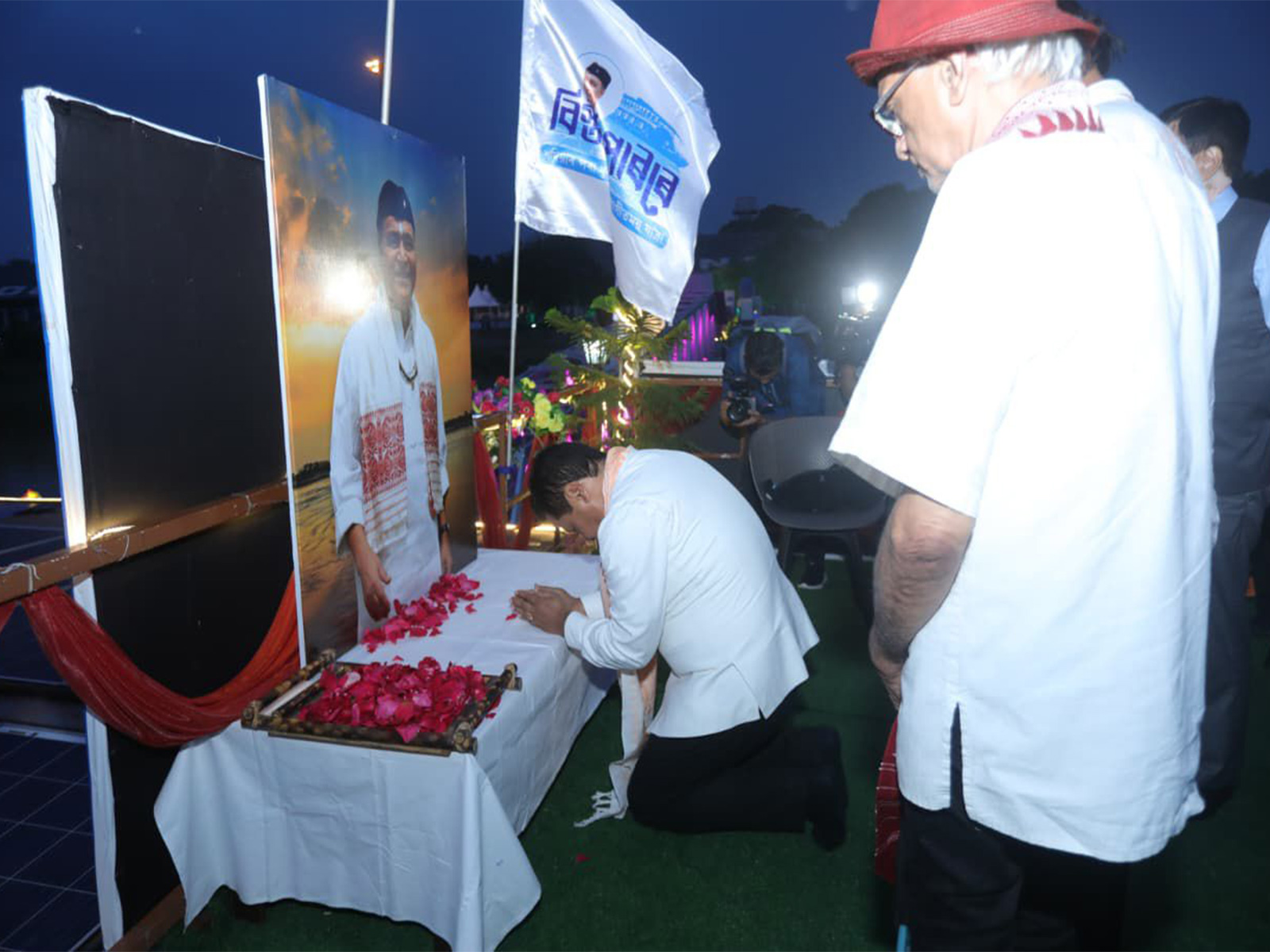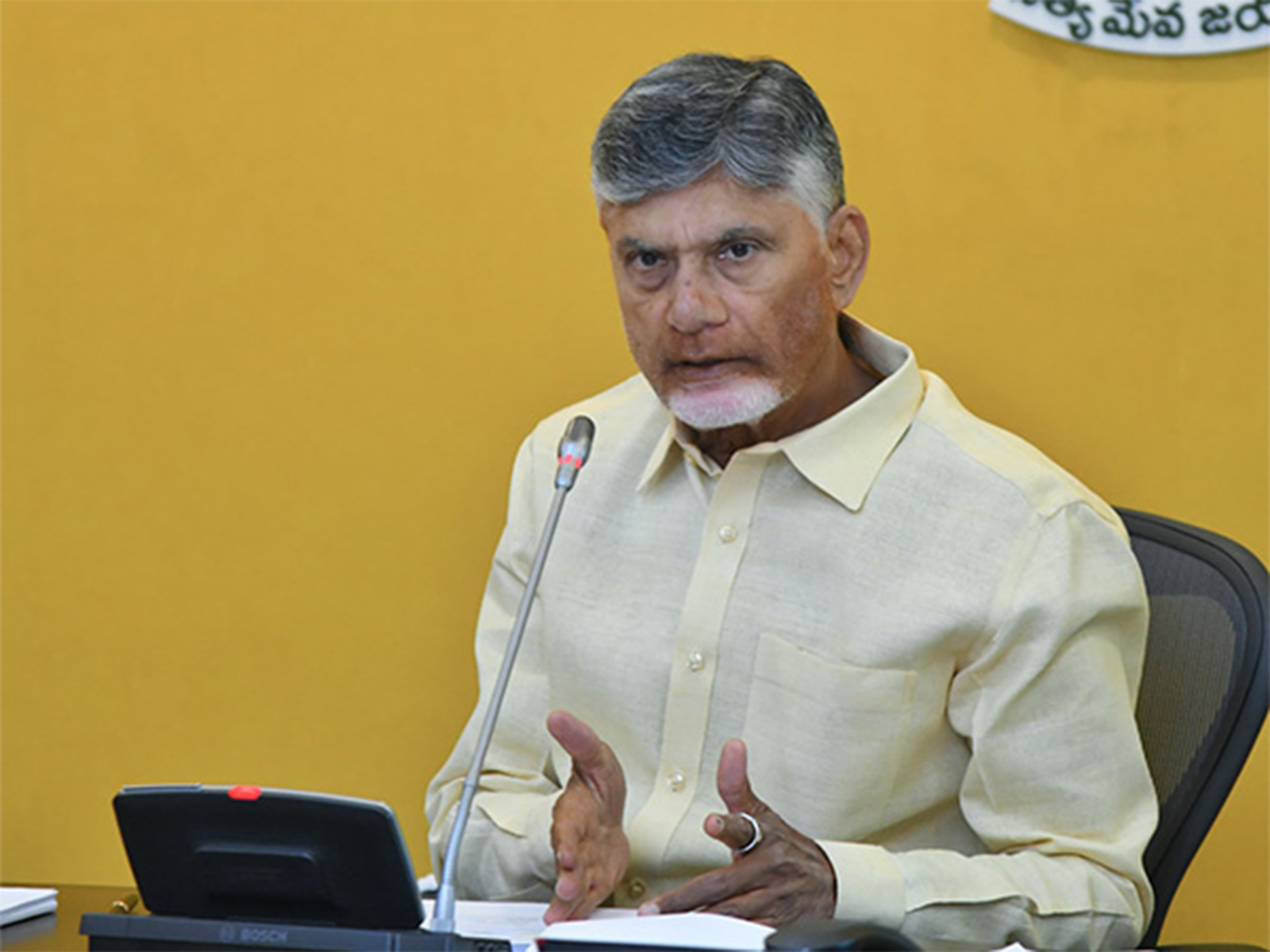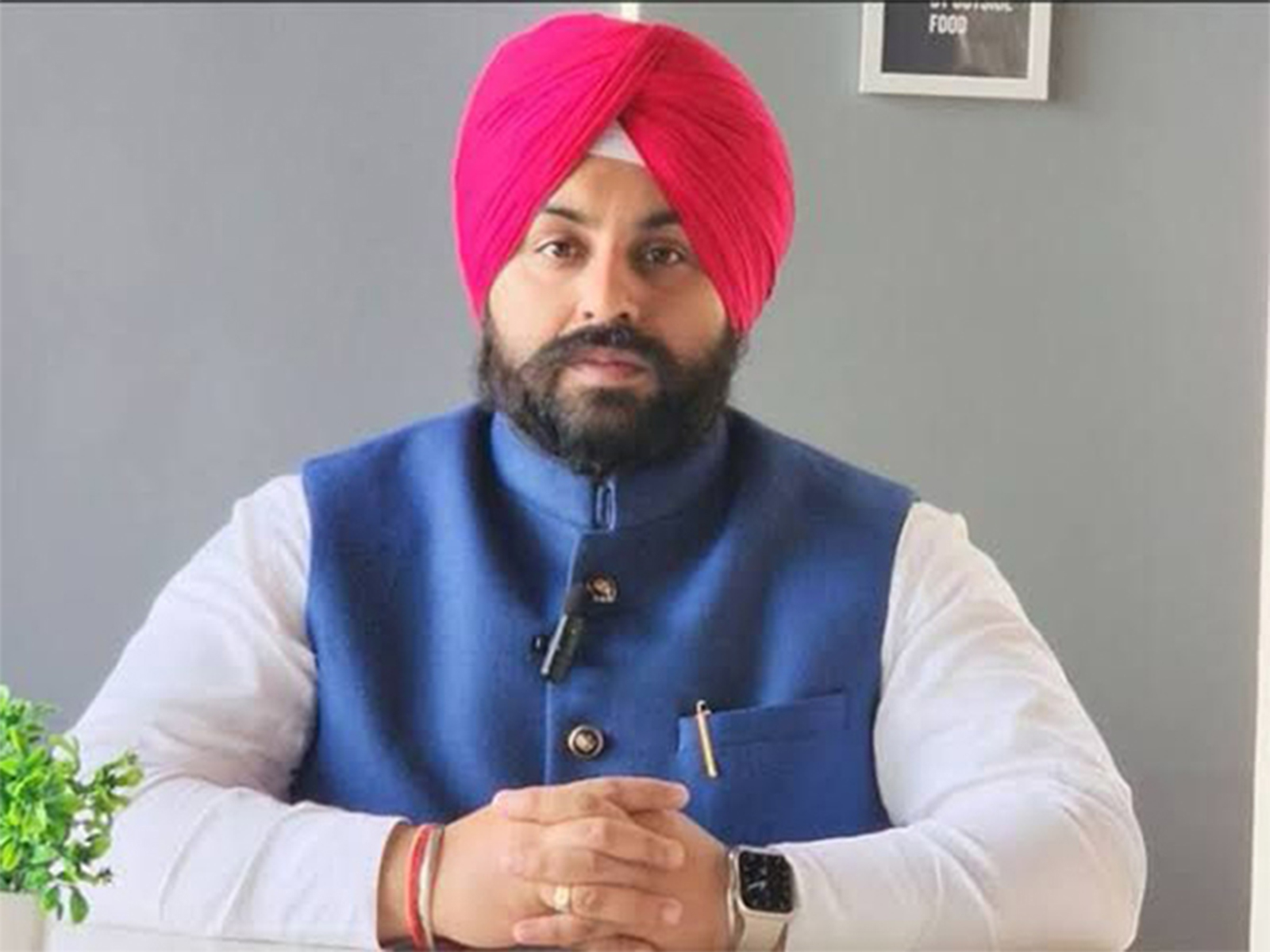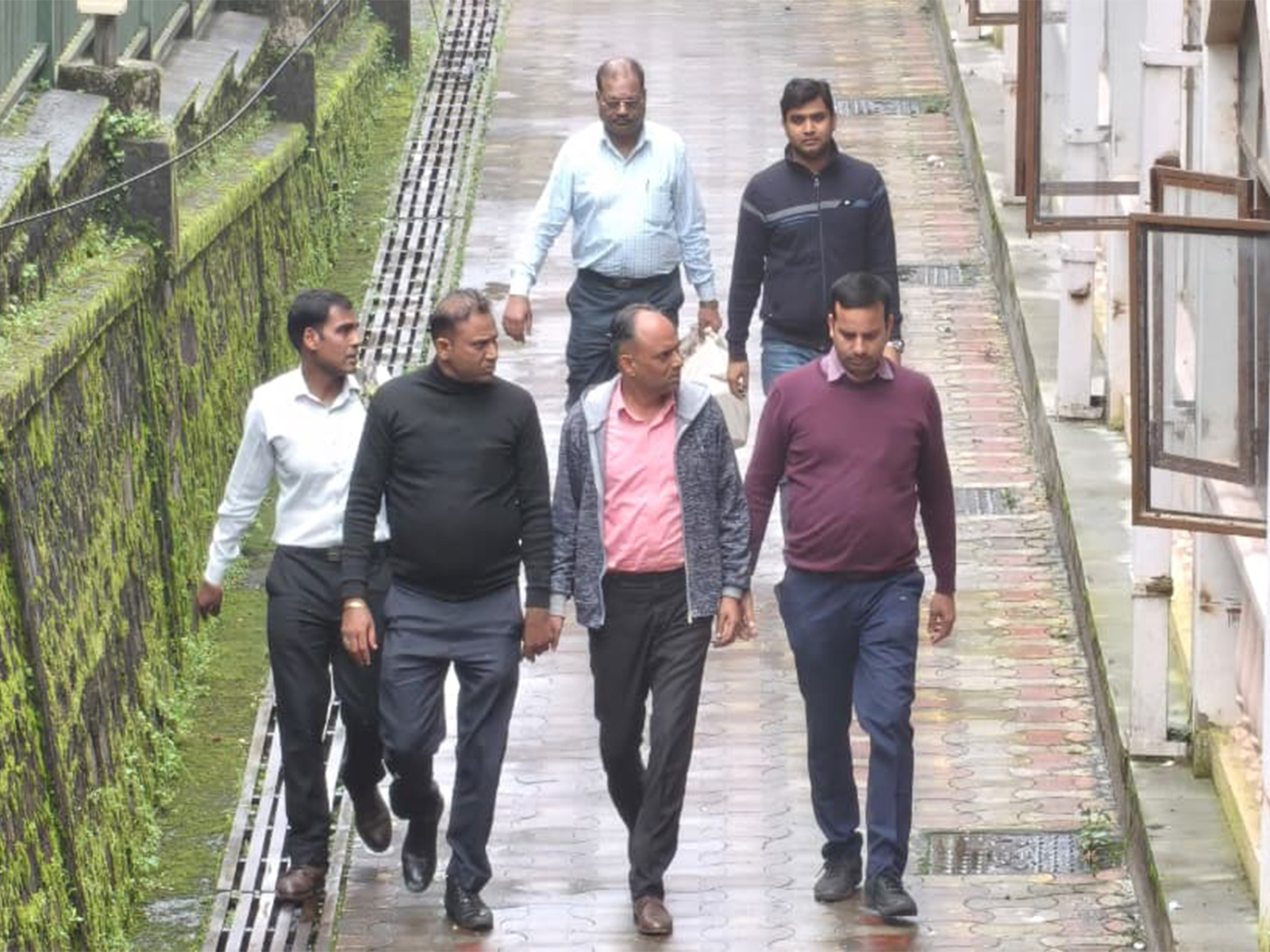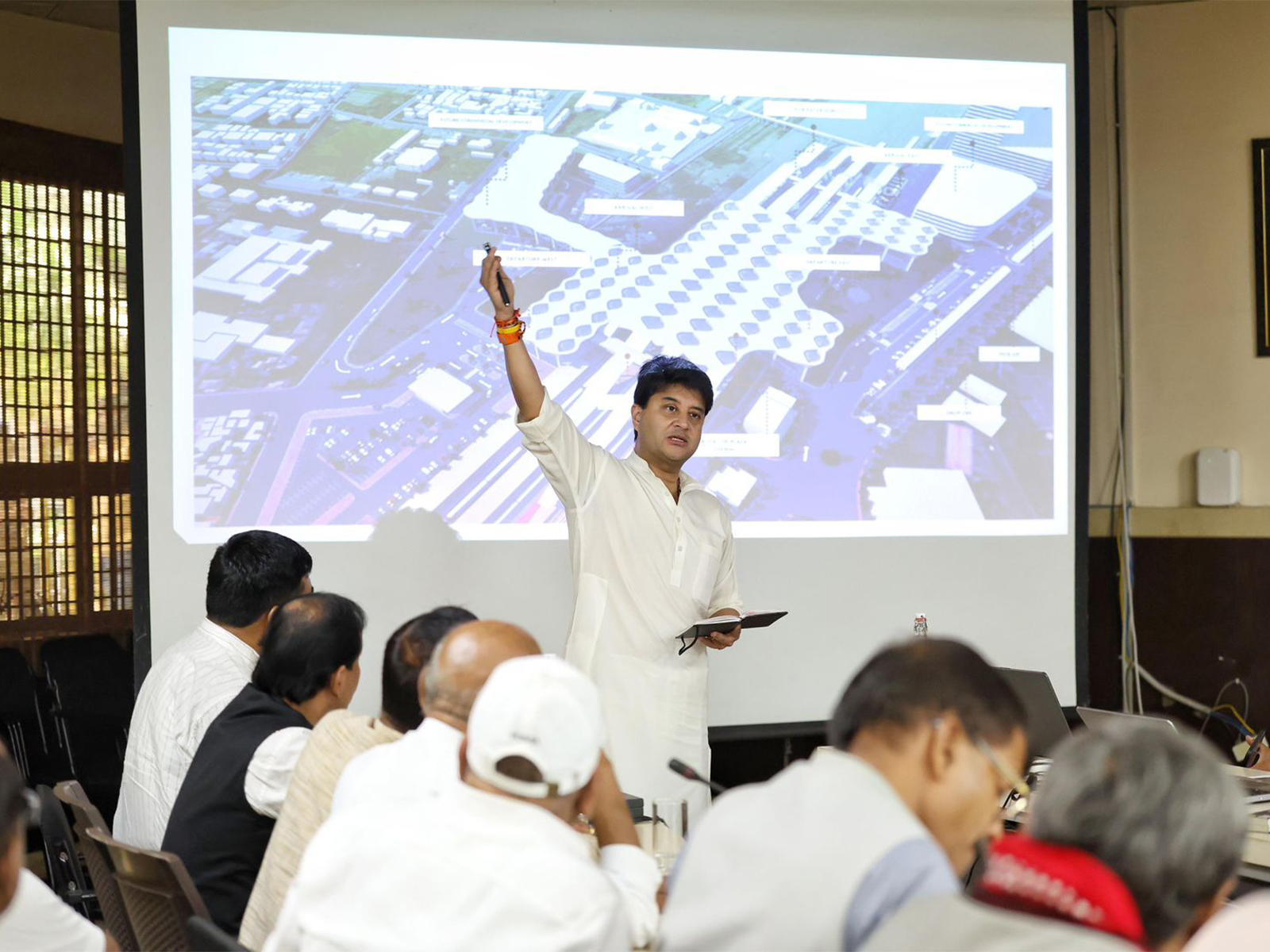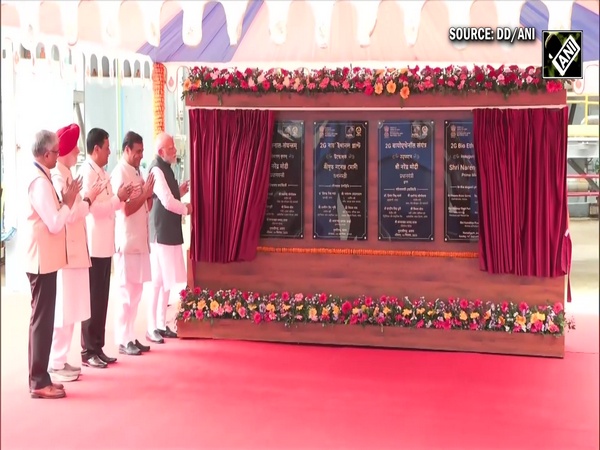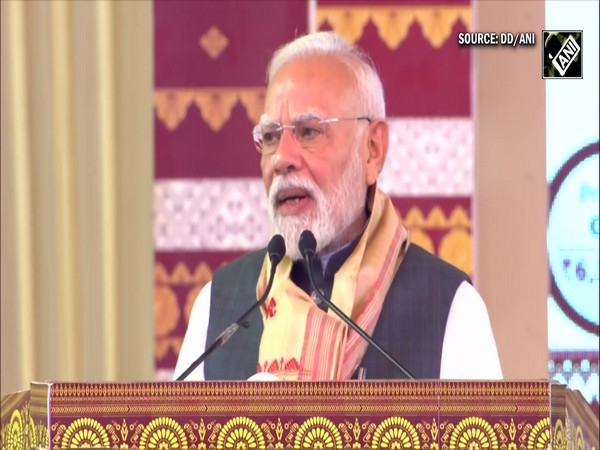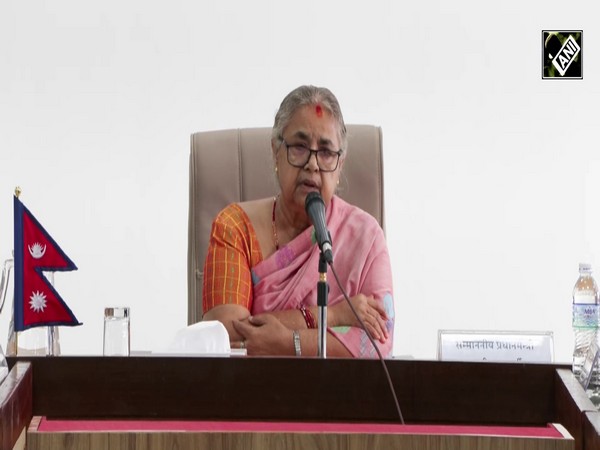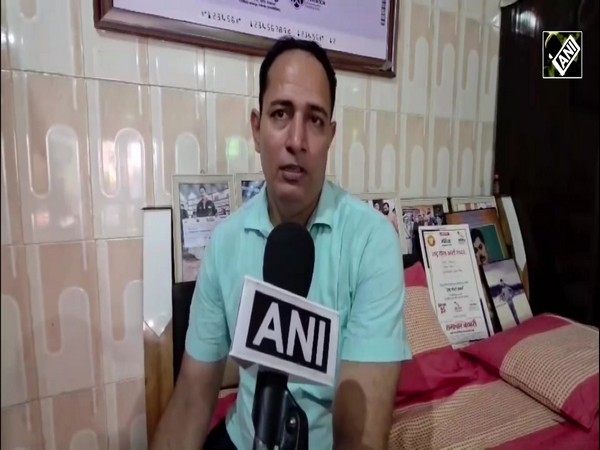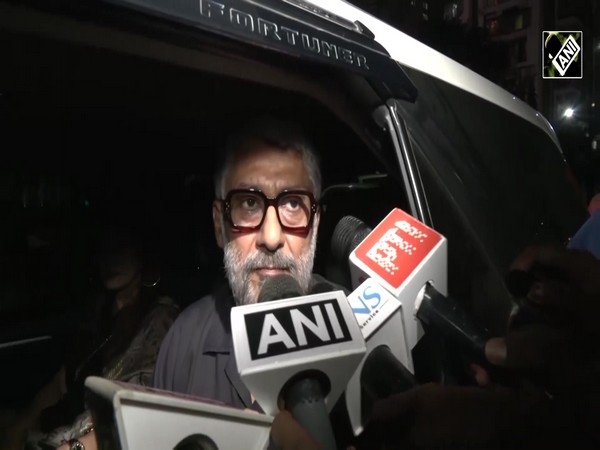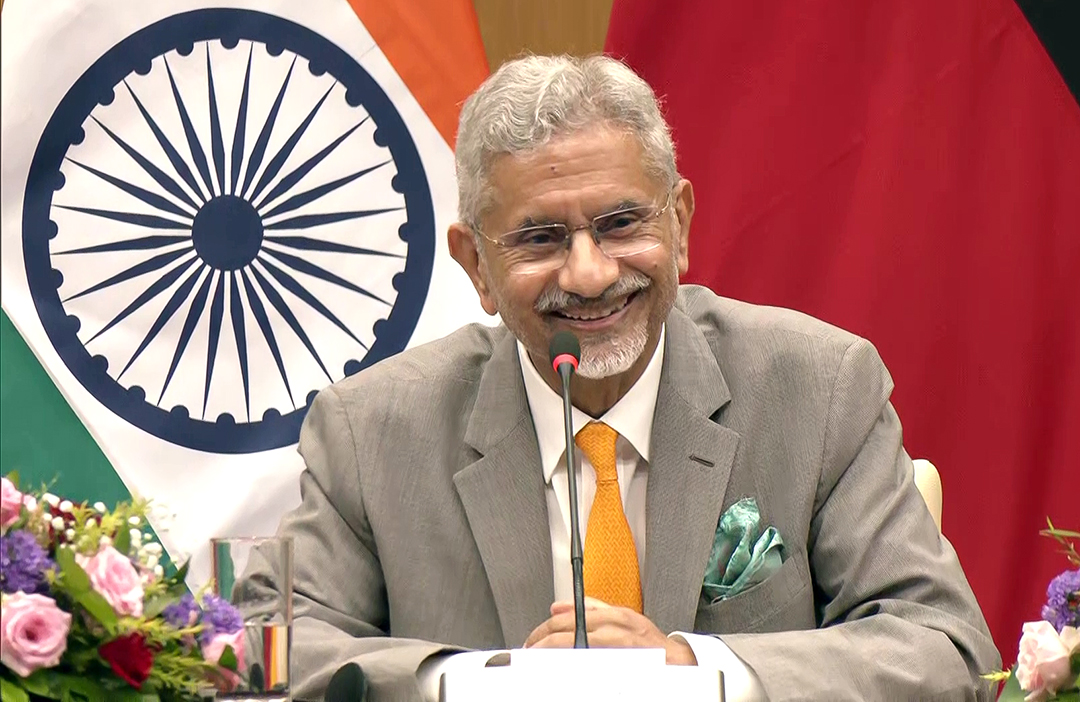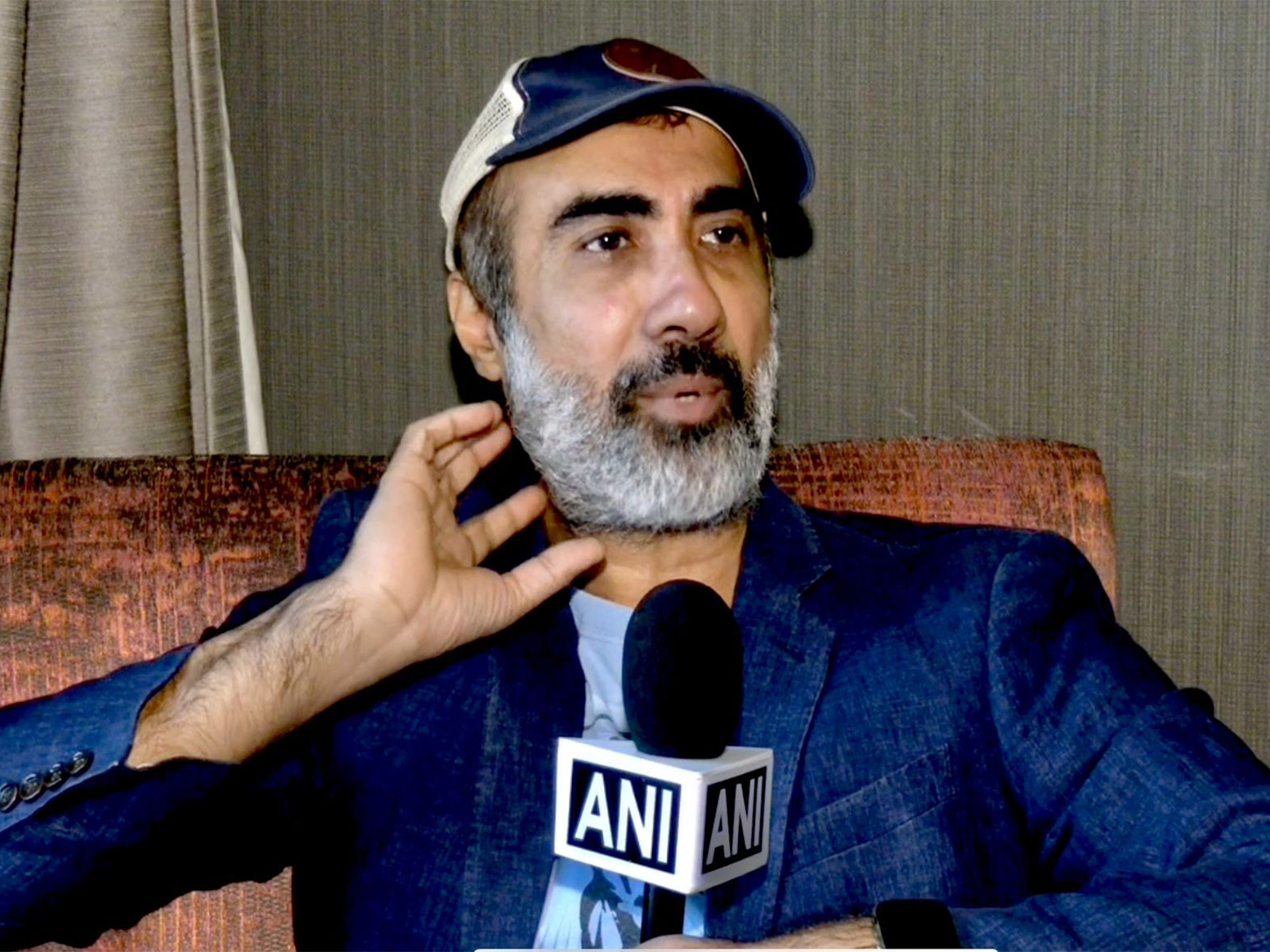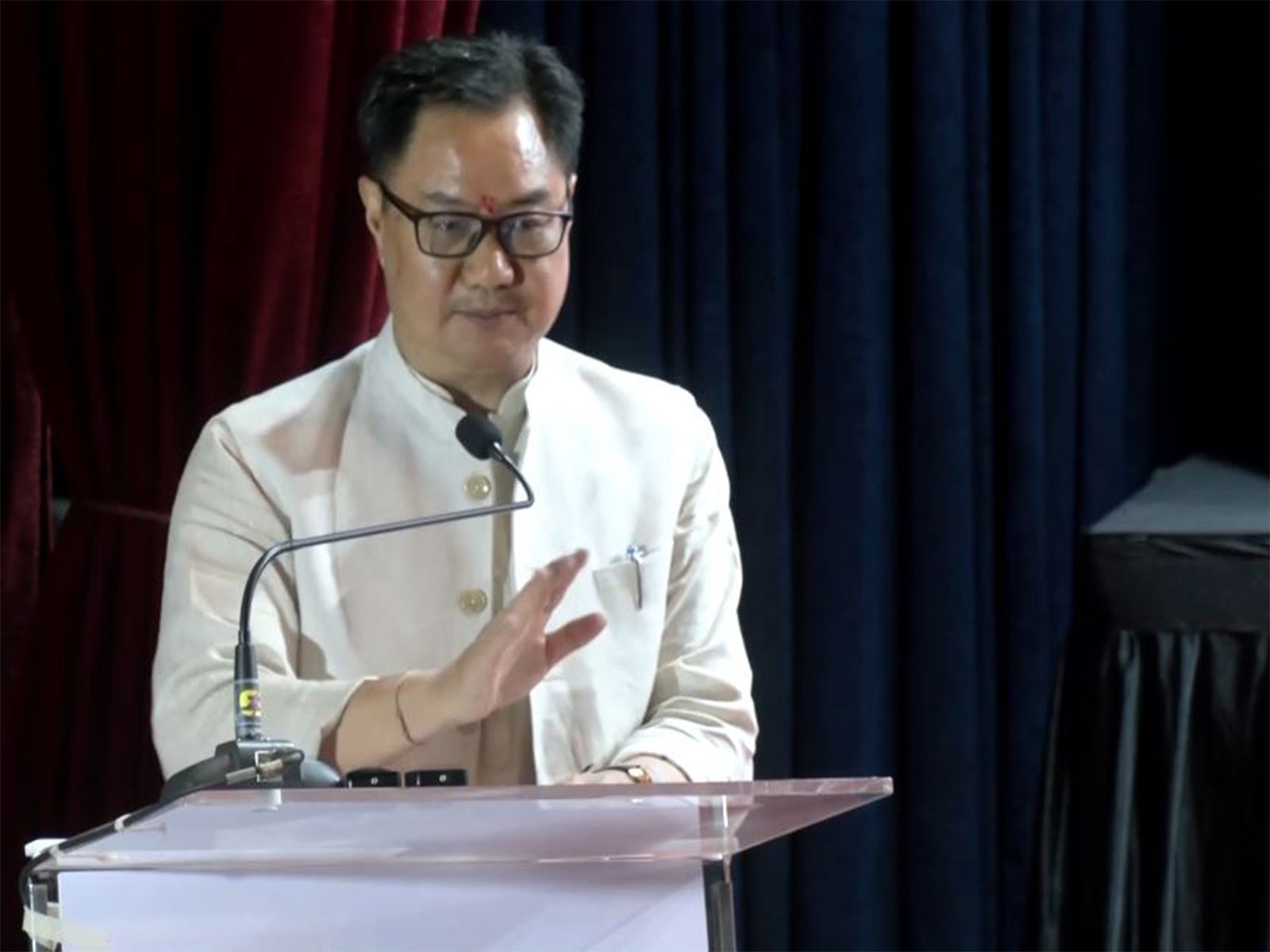
SC order has reaffirmed importance of Waqf reforms brought in 2025, verdict provides clarity and reassurance: Kiren Rijiju
Sep 15, 2025
New Delhi [India], September 15 : Union Minority Affairs Minister Kiren Rijuju has welcomed the Supreme Court judgment on the Waqf Amendment Act and said it is a step forward in ensuring that Waqf assets are protected, developed, and utilised for the welfare of the community and the nation in line with the objectives of the 2025 reforms.
The Union minister said the court order provides clarity and reassurance and the reforms introduced by the Government remain intact.
Rijiju, who had interacted with the media in Mumbai earlier in the day, said the Ministry will fully comply with the Court's directions, and continue to work closely with State Waqf Boards and the Central Waqf Council to implement reforms in a transparent, participatory, and constitutionally compliant manner.
The Supreme Court's order has reaffirmed the importance of the Waqf reforms brought in 2025, he said, adding that the Act remains fully operational. Waqf properties have been given strong legal protection against dispossession, and reforms such as digitisation, transparency, and development will continue as planned.
In his detailed response, the Union Minister said that the affidavit filed by the Union of India made it clear that Parliament, after detailed consultation and recommendations of a Joint Parliamentary Committee, enacted the 2025 reforms with due care.
The Court's decision not to stay the law in its entirety reinforces the settled principle that Parliamentary legislation carries a presumption of constitutionality, the Minister said
He said the Court noted that even in 1923, the legislature had recognised how waqf endowments were sometimes misused to evade creditors under the guise of religious dedication. Therefore, the possibility of individuals converting to Islam solely to misuse waqf protections cannot be ruled out. Prima facie, the requirement of practising Islam for five years before creating a waqf cannot be termed arbitrary.
However, as there is currently no procedure to verify such practice, appropriate rules will need to be framed by the States under Section 109. (Although para 143 mentions rules by the Central Government under Section 109, the power of rule-making lies with the State Governments.)
Rijiju said the Court also upheld the deletion of the concept of "Waqf by User."
He said if the legislature finds that this concept has led to large-scale encroachments on government properties, it is justified in deleting the provision. Such an amendment cannot prima facie be said to be arbitrary. The example of the Andhra Pradesh Waqf Board, where thousands of acres of government land were notified as waqf property, compelled the State to seek judicial intervention. Both the High Court and, on appeal, the Supreme Court found such claims untenable. The deletion of Section 3(r)(i) operates only prospectively from the date of the impugned Act and does not apply retrospectively.
"Hence, the petitioners' contention that existing waqf lands would be taken over by the Government prima facie holds no water. The amendment has thus been upheld," the minister said.
The Court observed that preventing a property from being treated as waqf even before inquiry is prima facie arbitrary.
While upholding Section 3C(1) and (2), it held that title disputes must be decided by judicial or quasi-judicial authorities, not by revenue officers. As submitted by the Solicitor General, no rights crystallise merely on an officer's report, and possession cannot be taken without orders of the Tribunal or higher courts. The Court stayed provisions allowing corrections in records, but to balance equities, it directed that mutawallis must not create third-party rights until final adjudication, Rijiju noted.
He said the Court also upheld Section 3D of the Act, noting that Section 5(6) of AMSAR permits citizens to continue with their customary religious practices even within protected monuments. Hence, the argument that Islamic religious practices would be curtailed at such waqfs does not hold water. The Court upheld Section 3D of the Amendment Act, recognising that monuments protected under the Ancient Monuments and Archaeological Sites and Remains Act, 1958 and Ancient Monument Preservation Act, 1904 form a vital part of India's cultural heritage and must be safeguarded.
The Court upheld Section 3E of the act safeguarding the tribal land in schedule 5 and 6 of the Constitution from declaration of tribal land as waqf property.
The Court has reaffirmed the minority character of Waqf institutions while also upholding limited non-Muslim representation in the Waqf Boards and Central Waqf Council (CWC). Under the Amended Act, the CWC can have at most four non-Muslim members, including ex officio positions such as the Union Minister in charge of Waqf and the concerned Joint Secretary.
Similarly, in State Waqf Boards, no more than three of the eleven members can be non-Muslims, including ex officio members. Since Waqf Boards are statutory bodies falling within the definition of "State" under Article 12, their membership cannot be restricted to one religion alone. The JPC had also endorsed limited non-Muslim inclusion to make these institutions more broad-based, inclusive, and transparent. The Court upheld this framework.
On Section 23, concerning appointment of the Chief Executive Officer (CEO) of Waqf Boards, the Court did not stay the provision allowing non-Muslim CEOs. However, it directed that, as far as possible, the CEO should be from the Muslim community in order to preserve institutional sensitivity.
The Government's contention that the CEO position is open to all, without restriction of religion, has thus been upheld, the minister noted.
The CEO must be a full-time officer not below the rank of Joint Secretary to the State Government, acting as ex officio Secretary under the control of the Board. The Court noted that, since at least two-thirds of Board members will always be from the Muslim community, the character of the institution remains unaffected even if a non-Muslim holds the CEO post.
However, it also clarified that the CEO is not the same as the Joint Secretary to the State Government and is not a member of the Board. The Court's observations on CEO appointments reflect a balance--while preserving flexibility in appointments, it also recognises the need for sensitivity to community concerns, the minister said.
The Court noted that since 1923, registration of waqfs has always been mandatory. Mutawallis who failed to comply for more than a century cannot now claim that their waqfs be recognised without registration. Even where no waqf deed exists, the law has long allowed registration based on available particulars. Therefore, the present requirement of submitting a deed with new applications--introduced to curb misuse--cannot be termed arbitrary.
Registration is essential, and the legislature's decision that all new applications must be accompanied by a copy of the waqf deed is fully justified. Importantly, the Court gave no ruling that unregistered waqfs without deeds be treated as valid waqfs, Rijiju said.
The Court upheld Section 36(10) of the Amendment Act, which provides that applications or suits filed by non- registered waqfs after six months cannot claim the benefit of Waqf Act protection.
The Court upheld the deletion of Section 104, thereby restricting the creation of new waqfs by non-Muslims. It upheld the deletion of Section 107, making the Limitation Act, 1963 applicable to waqf disputes.
The Court upheld the deletion of Section 108 concerning evacuee properties, since the Evacuee Property Act, 1950 is no longer in existence. The Minister said the court upheld Section 108A of the Amendment Act, which removes the overriding effect of the Waqf Act over other laws.
"The Government welcomes the Court's observation that reforms such as digitisation, transparency, welfare delivery, and development of properties can and should continue. These measures are essential for ensuring that waqf income is used effectively for education, health, and upliftment of the community," Rijiju said.
The Waqf Amendment Bill was passed by Parliament after a marathon debate. It was opposed by the opposition parties. The President gave assent to the bill on April 5.
The Supreme Court on Monday refused to stay the entire Waqf (Amendment) Act 2025, but put on hold certain provisions pending the final adjudication of petitions challenging the constitutional validity of the Act.A bench of Chief Justice of India BR Gavai and Justice Augustine George Masih observed that some sections of the amended Act need some protection. Passing the interim order, the bench stayed the provision in the Act that a person should be a practitioner of Islam for five years to create a Waqf.
It said the provision will be stayed till rules are framed on determining whether a person is a practitioner of Islam. The bench said that without any such rule or mechanism, the provision will lead to an arbitrary exercise of power.
The apex court also stayed the provision allowing the Collector to decide the dispute whether a Waqf property has encroached upon a government property. It said the Collector cannot be permitted to adjudicate the rights of personal citizens, and this will violate the separation of powers.
